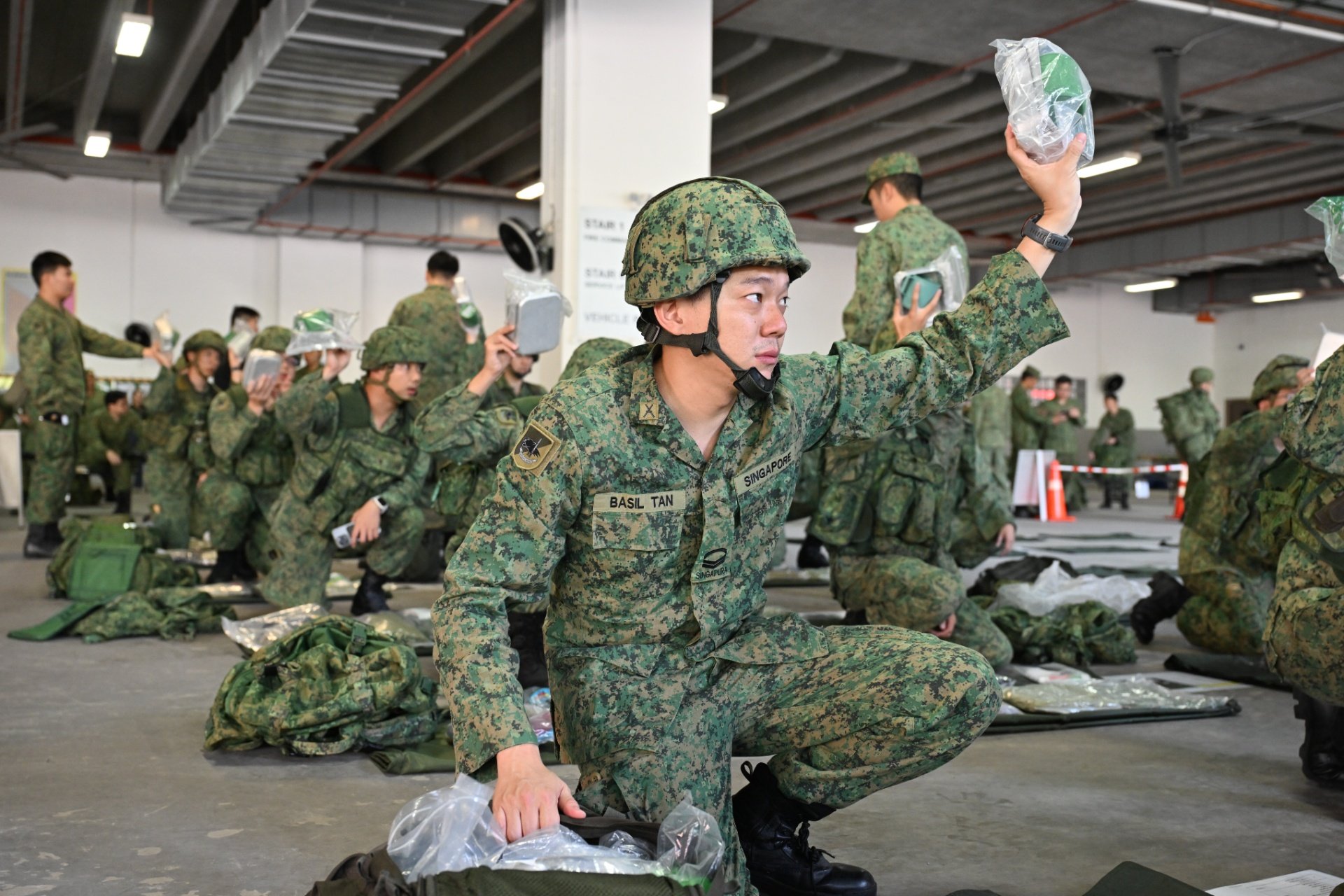OPS & TRAINING
BECOMING SOLDIERS: FIRST FIELD CAMP
18 Nov 2022
It's a rite of passage that all new recruits in Basic Military Training (BMT) must go through in their journey to becoming full-fledged soldiers in the Singapore Armed Forces.
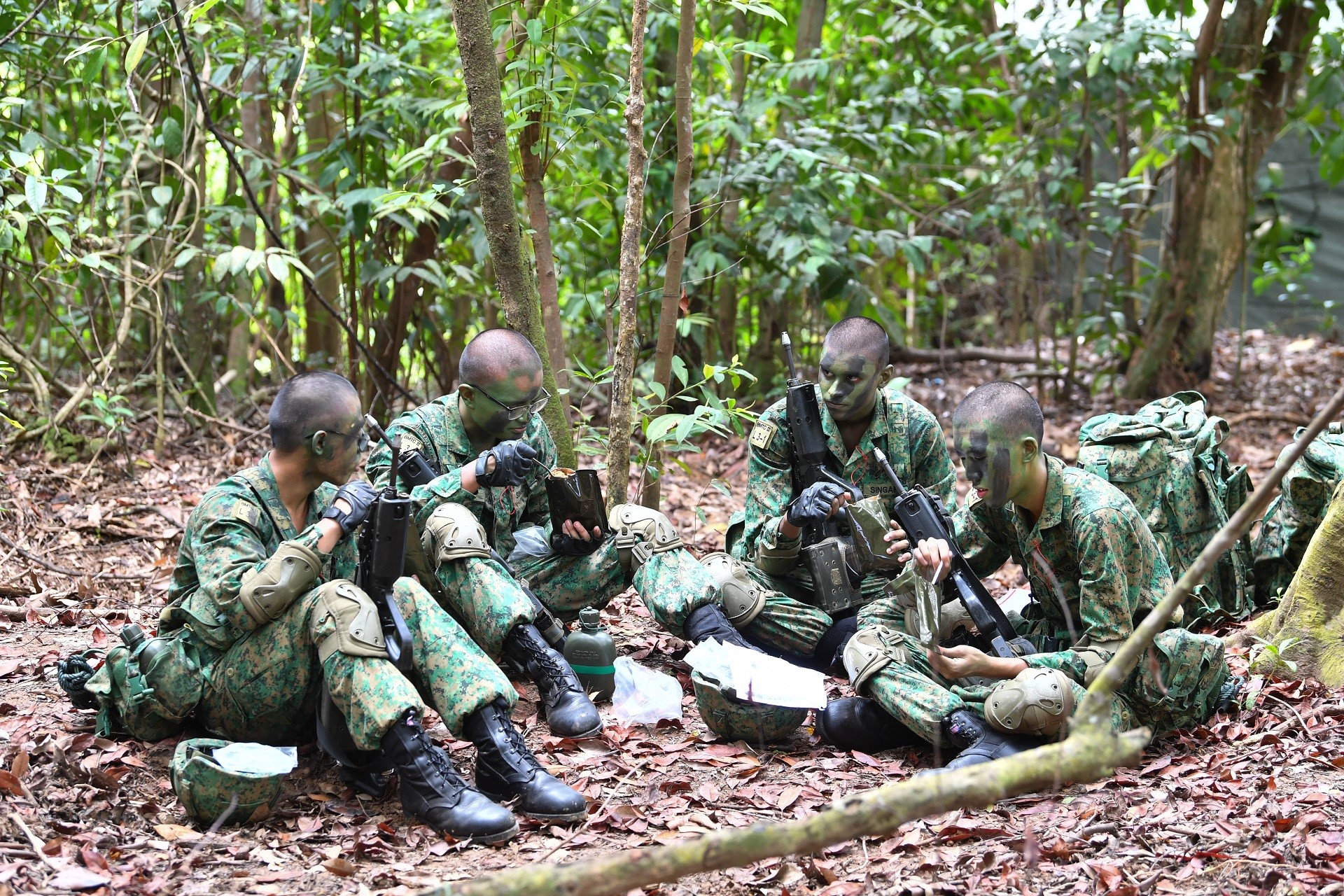
Field camp takes the young soldiers away from all the comforts they are used to and gives them their first taste of living and fighting in the jungle.
PIONEER joined the recruits of Basic Military Training Centre's Leopard Company on their first field camp from 23 to 26 Apr.
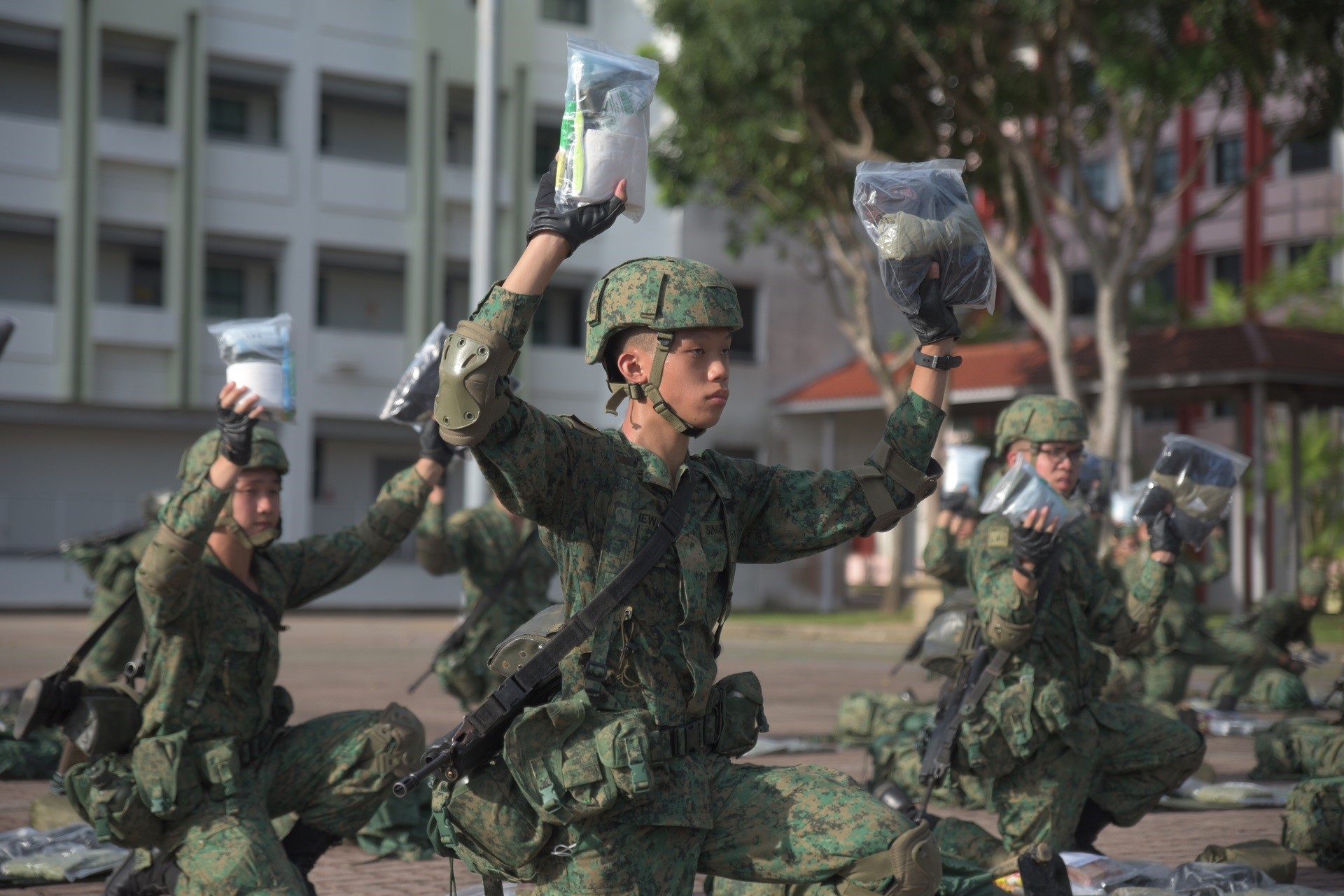
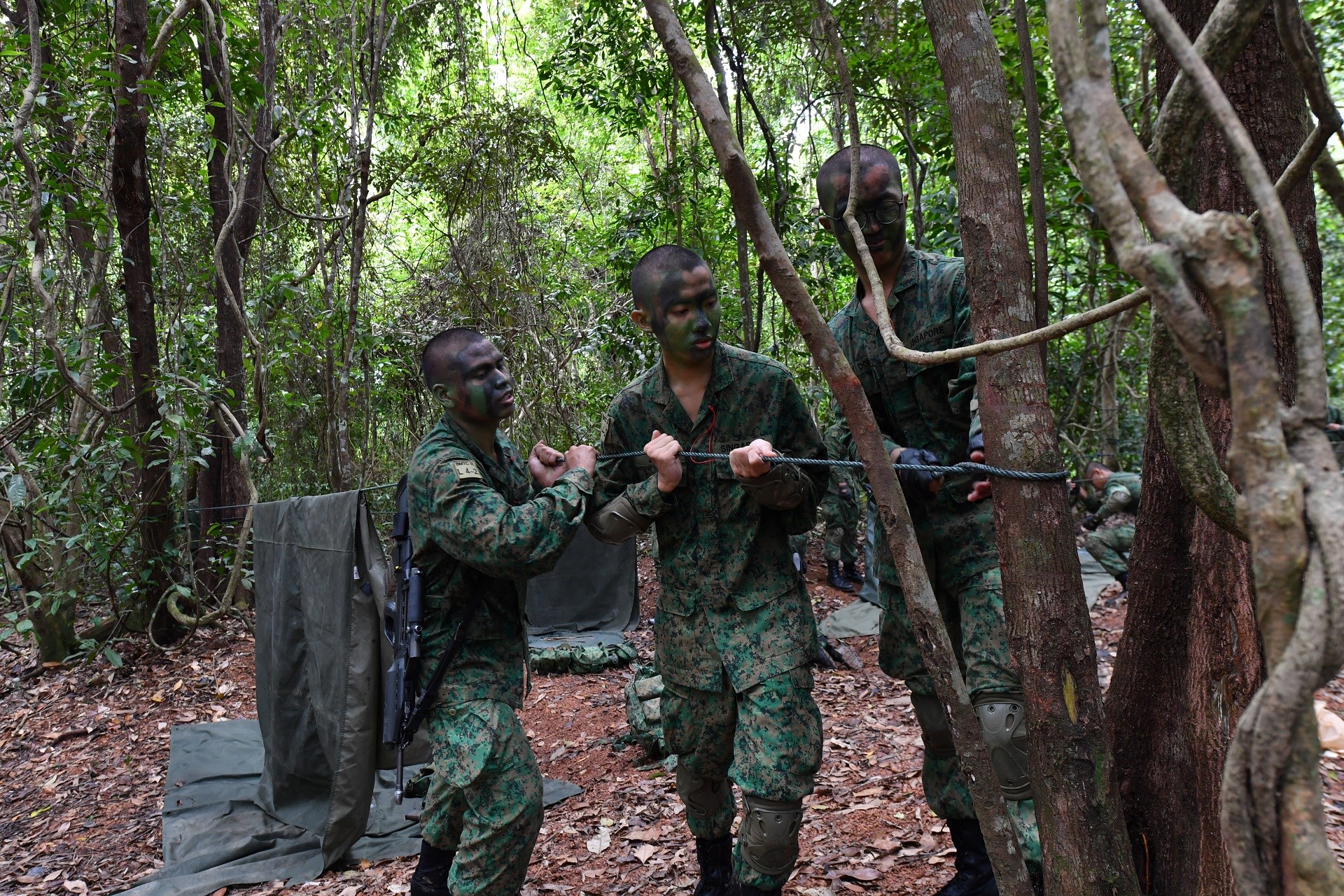
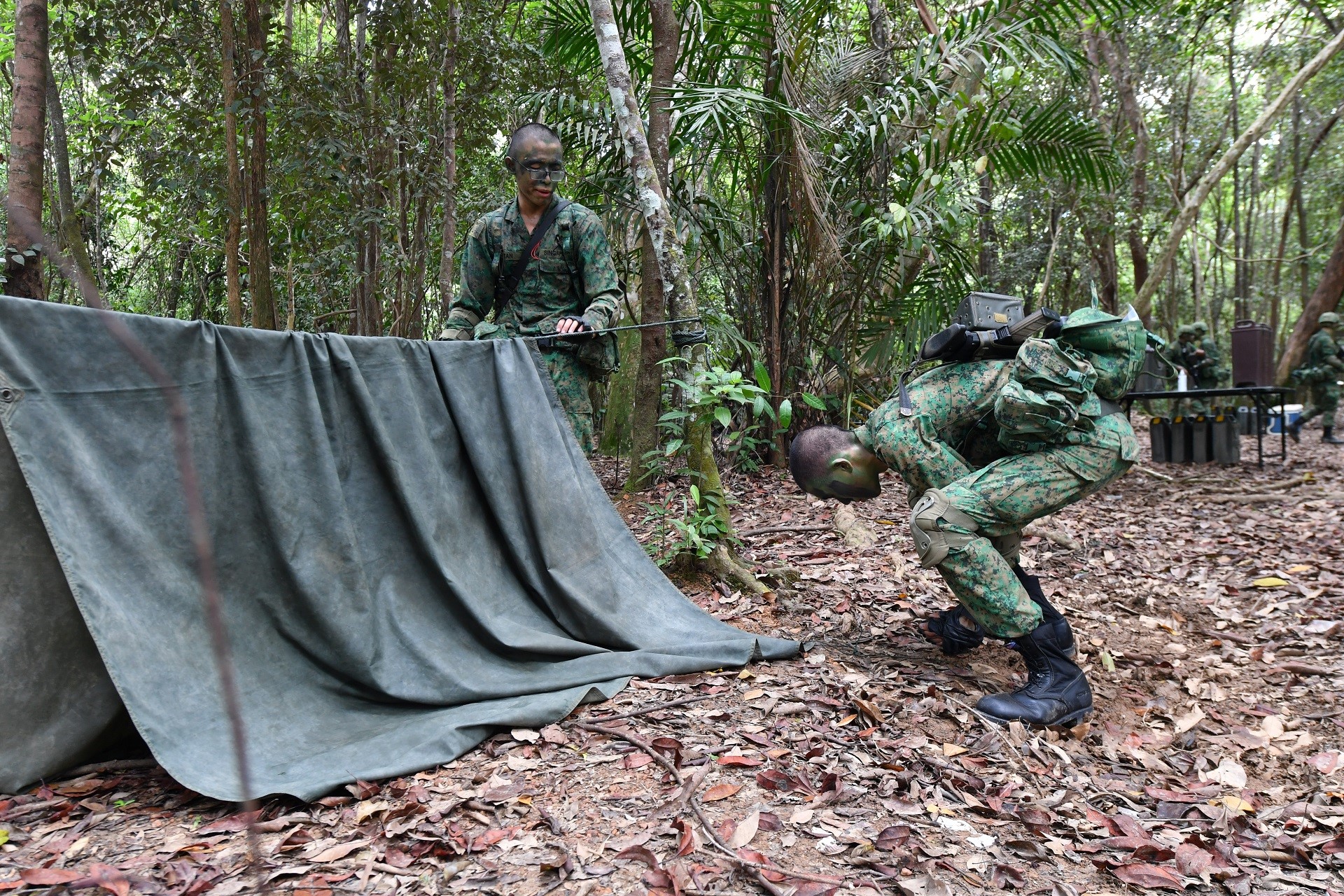
Fire and Movement (pictured below) is an important aspect of the recruits' Individual Field Craft (IFC) capabilities. Working in threes, they learn how to advance towards and retreat from a target or objective, while making use of the available vegetation to conceal themselves.
They also get to practise their leadership skills as each one gets the chance to be the In-charge (IC) and lead the trio in the mission.
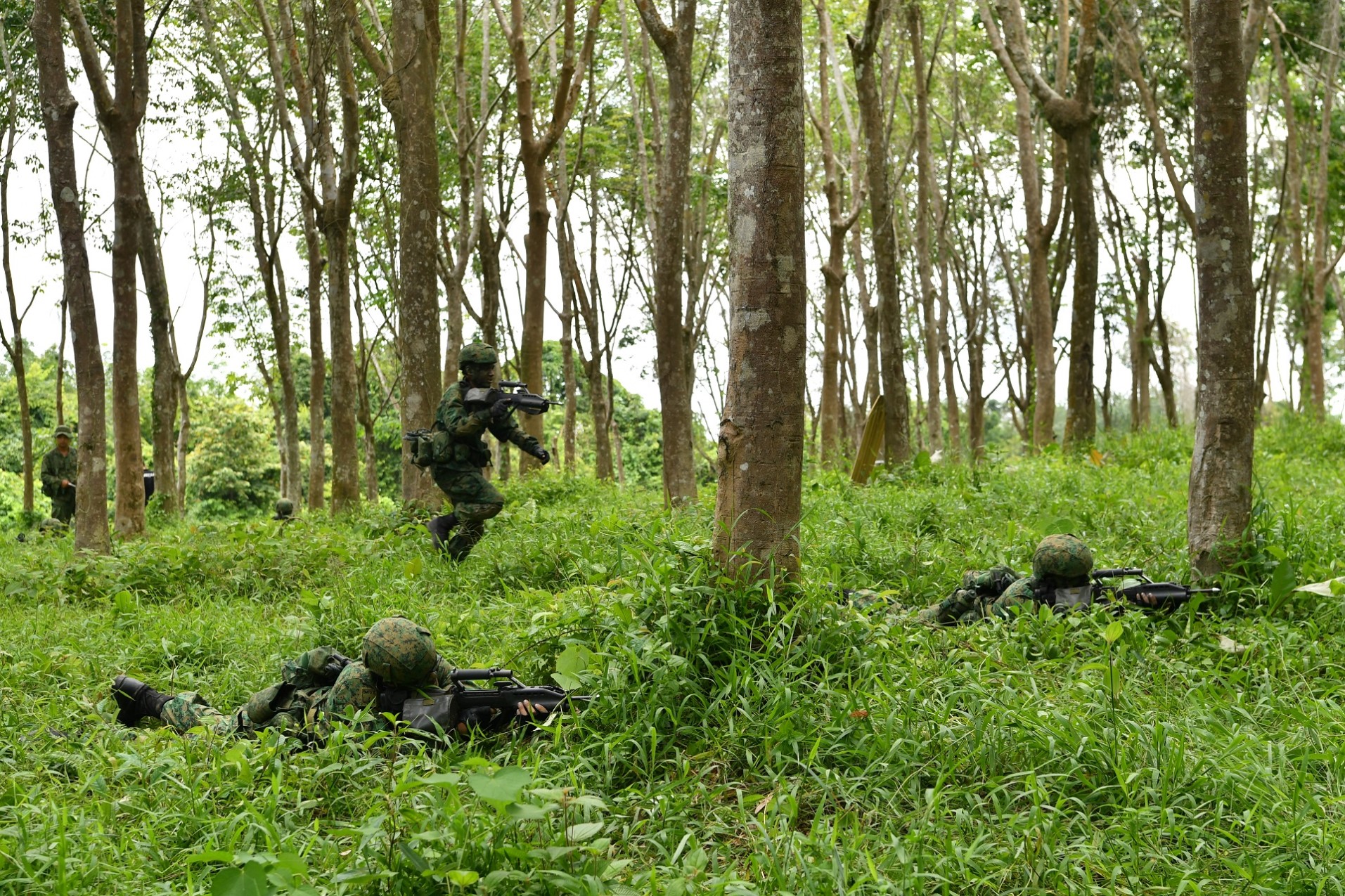
Recruit (REC) Aasish Mamidi, 18, found the IFC training to be more challenging than he expected. "Not only is it tiring, you also have to remember all the commands that you have to give while running and proning in the grass or taking cover behind the trees.
"But it's also a chance for me to exercise my leadership skills and build on my teamwork and team spirit."
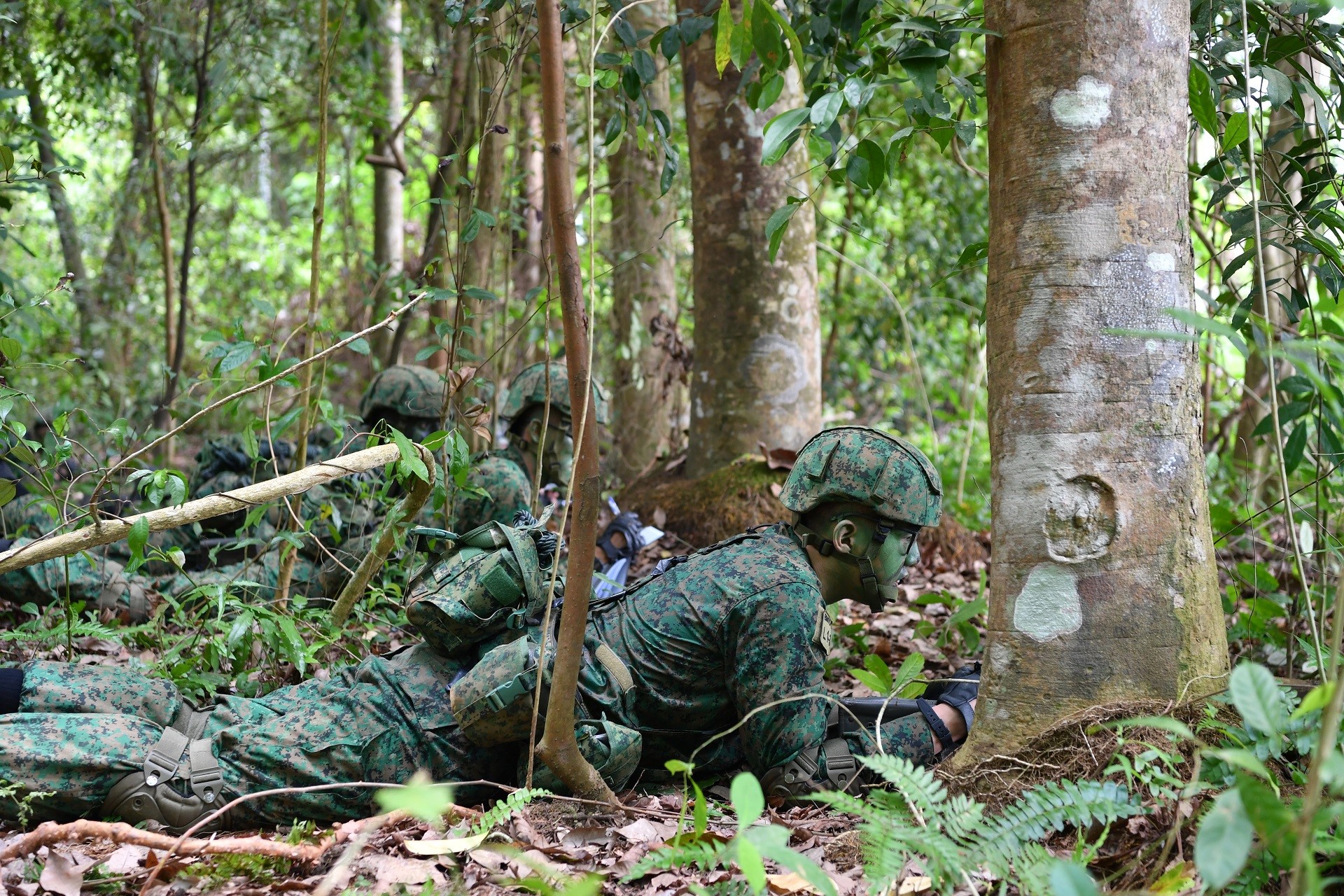
Warfighting is not only about action and movement; at times it's necessary to quieten down and observe one's surroundings.
Here, they train their ears to locate enemy fire by paying close attention to the sound of gunshots to determine the direction of the gunfire – all this while lying prone amid the heavy forest vegetation.
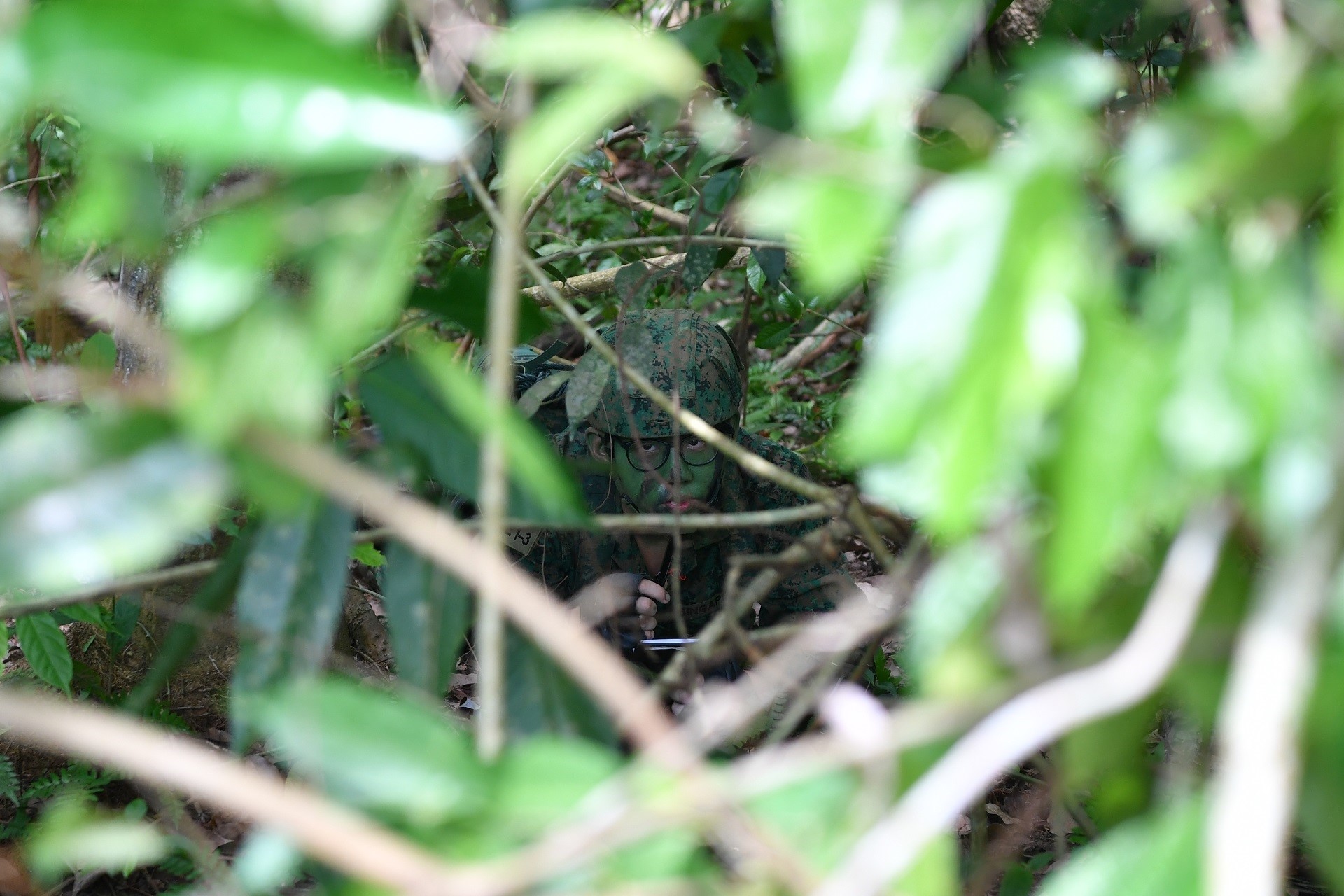
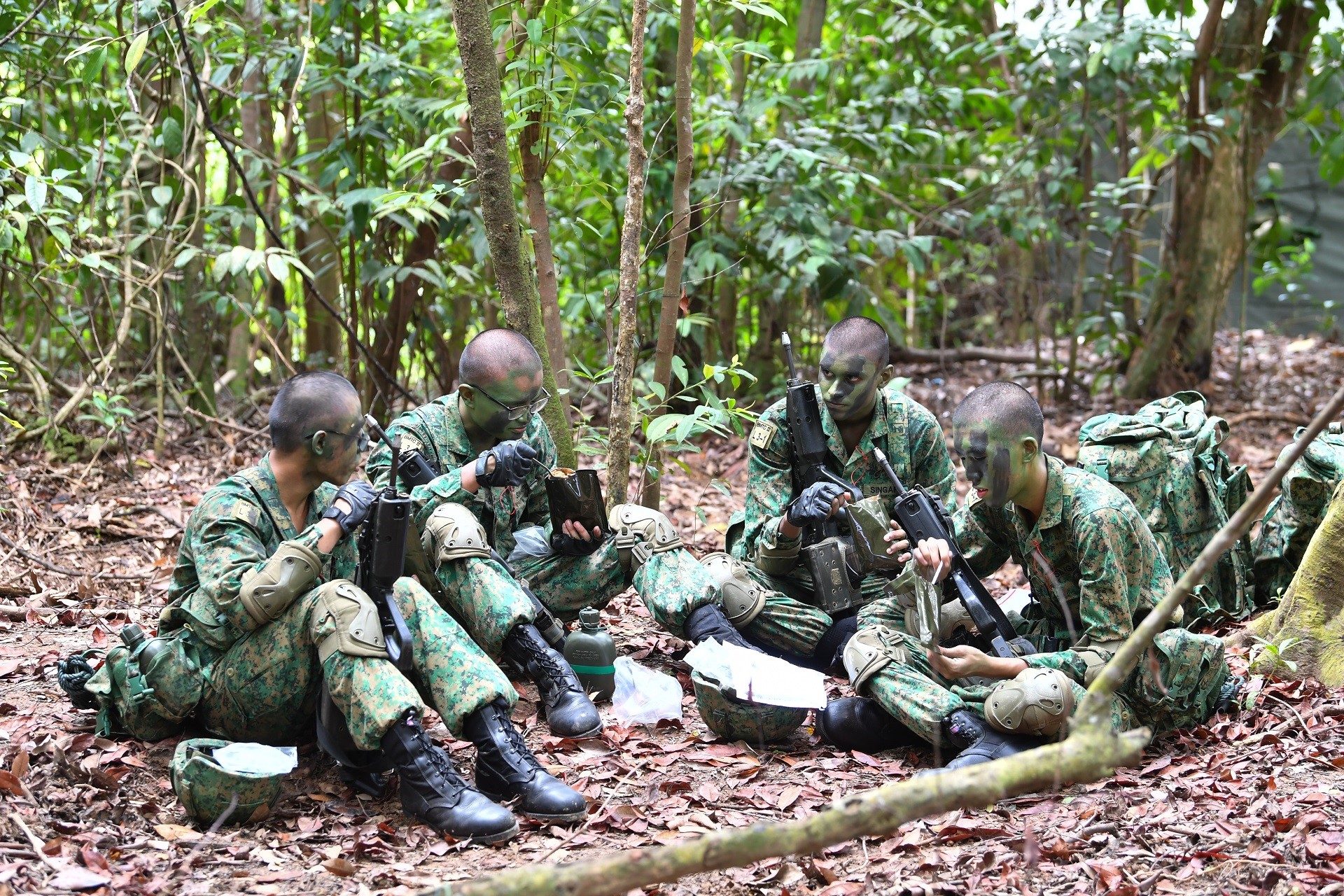
Lunch time! The soldiers enjoy a short respite from the sun and training to tuck into some field camp staples – combat rations.
"The combat rations were surprisingly quite nice and I enjoyed them. The meals are different from cookhouse food, which is usually rice and a chicken dish. It's also very convenient to eat and won't cause a mess, compared to fresh rations," said REC Ethan Ha, 18, who was eating combat rations for the first time.
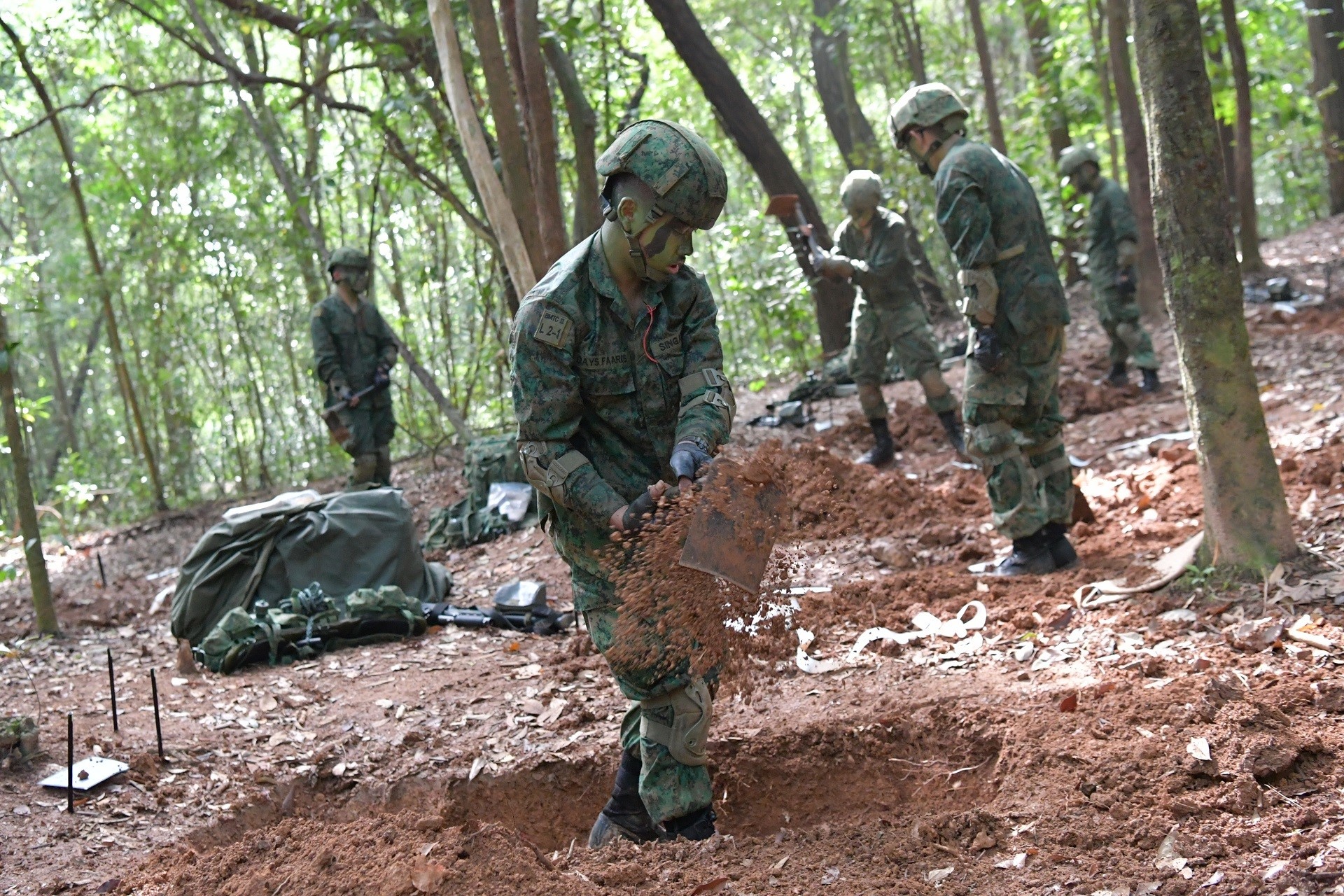
Ask any recruit, and they are likely to agree that shellscrape digging is one of the toughest parts of the field camp.
It's not just physically demanding, there's also the mental pressure of completing the 240cm-by-60cm hole within a two-hour window. Perfecting this skill is crucial because the shellscrape provides protection during a live firing.
REC Muhammad Hashri Bin Hassan, 23, said: "You need to be both mentally prepared and physically fit when digging your shellscrape. And because this is the fasting month, it's especially tiring for those of us who are fasting."
However, he was motivated to push through by his buddy: "I was struggling at first because the soil I was on was very dry and difficult to dig into. But then I saw that my buddy, who had the same type of soil, was making more progress than me, so I pushed myself to keep up with him."
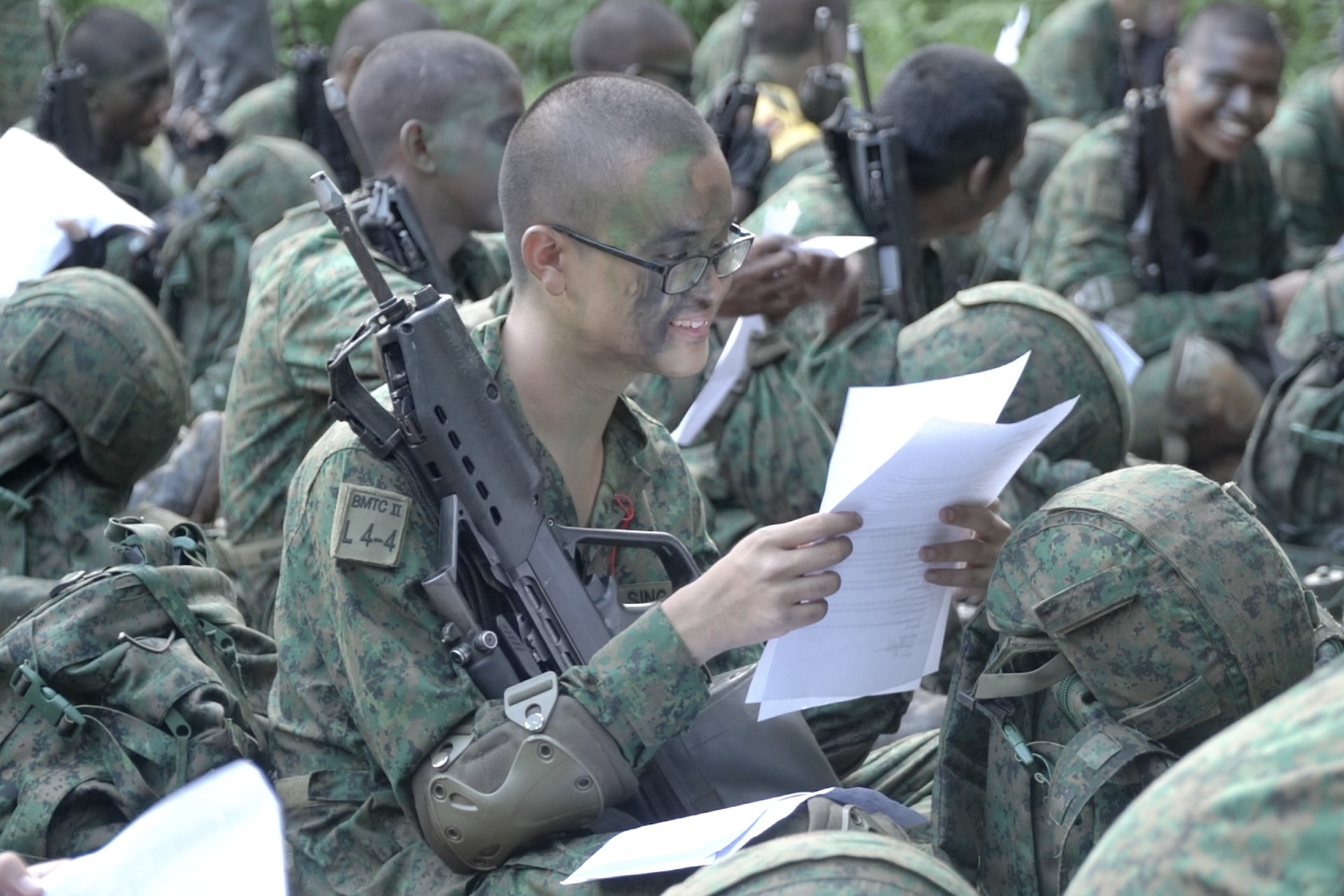
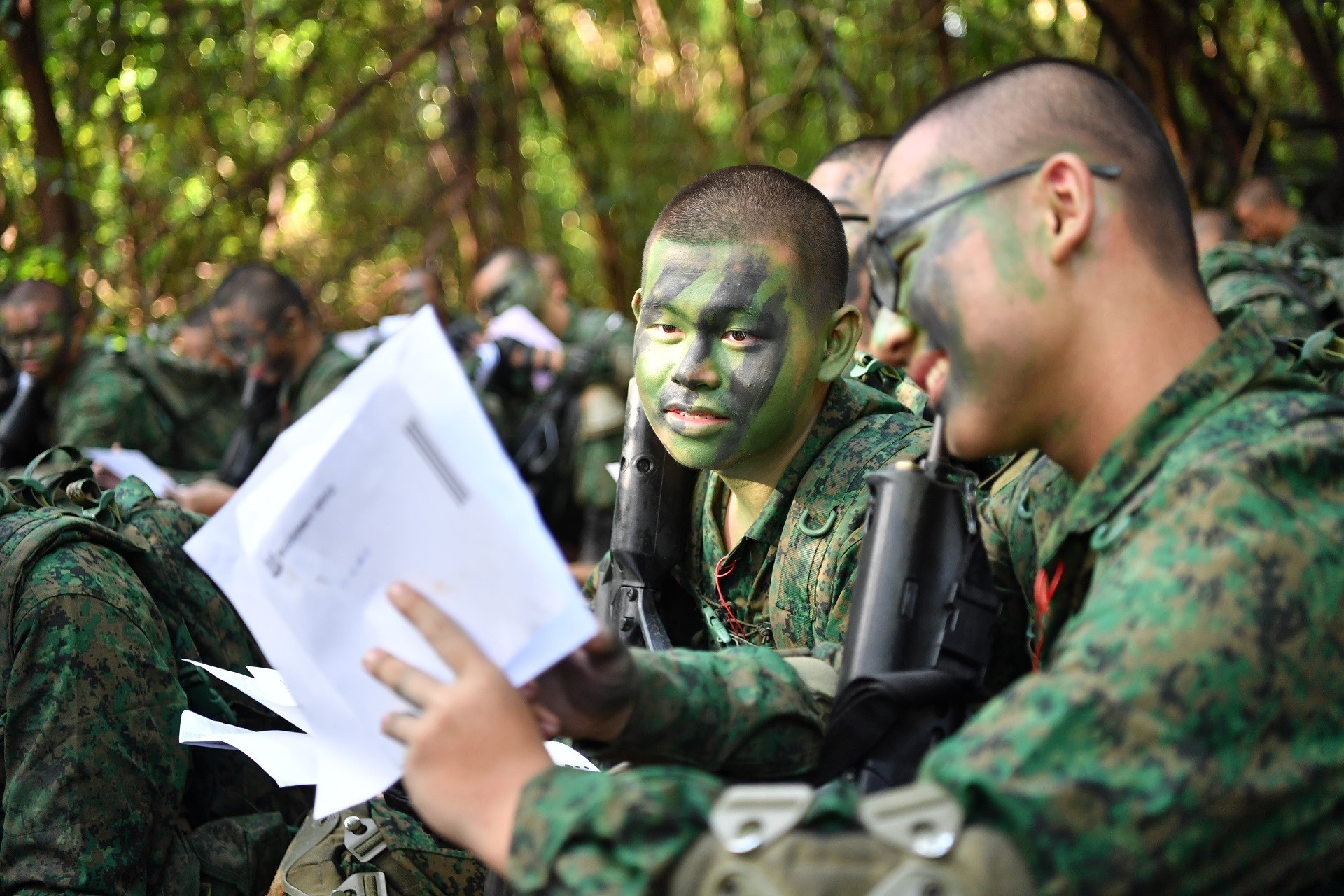
"I was very touched to receive the letter from home. After the hardships and struggles I faced in BMT and PTP (Physical Training Phase), I was moved to know that my family is behind me even though they are not here with me.
"I was already emotional when I saw the letters, and reading the words (written by my family) just softened my heart," REC Ha (pictured above, second from right) said.
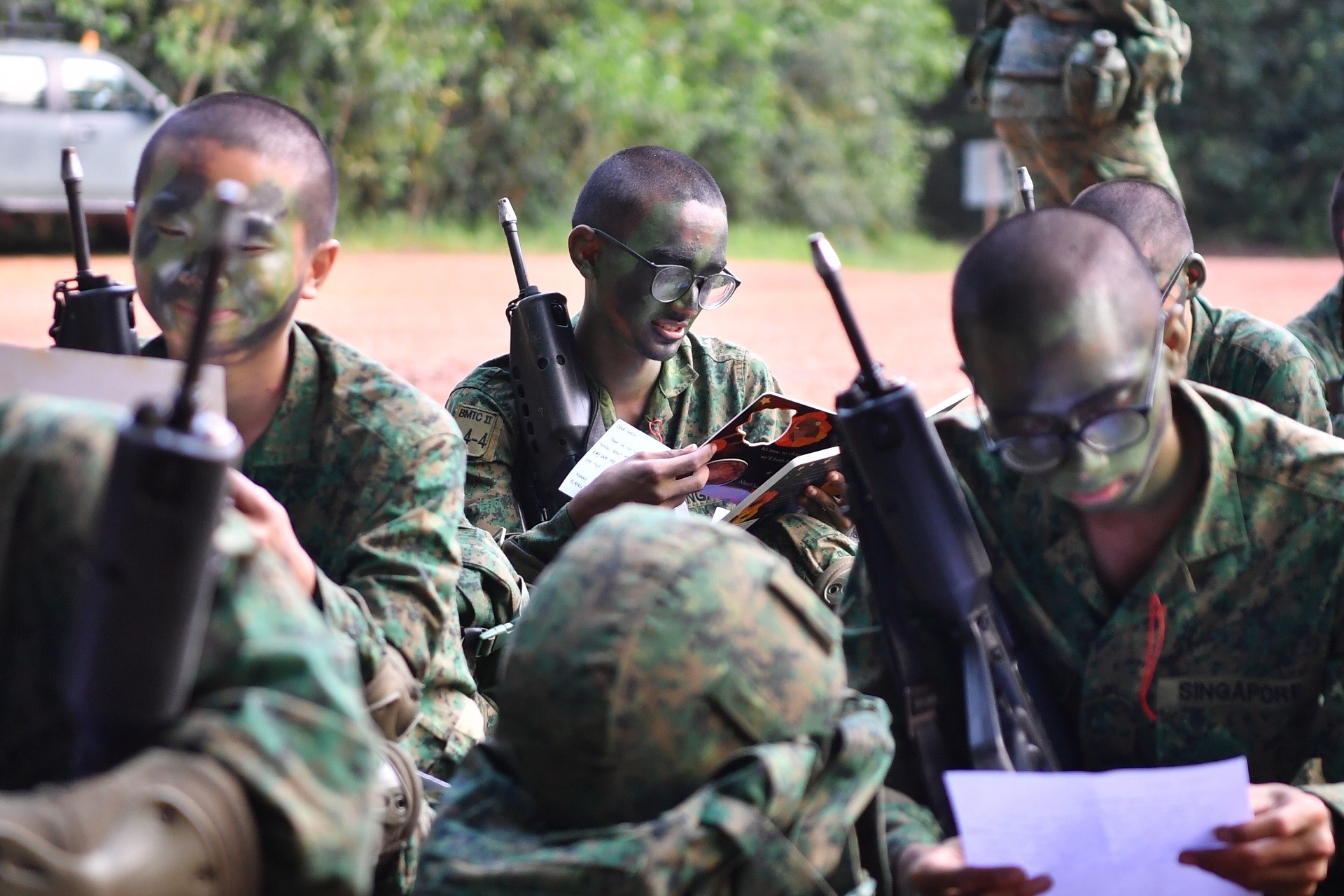
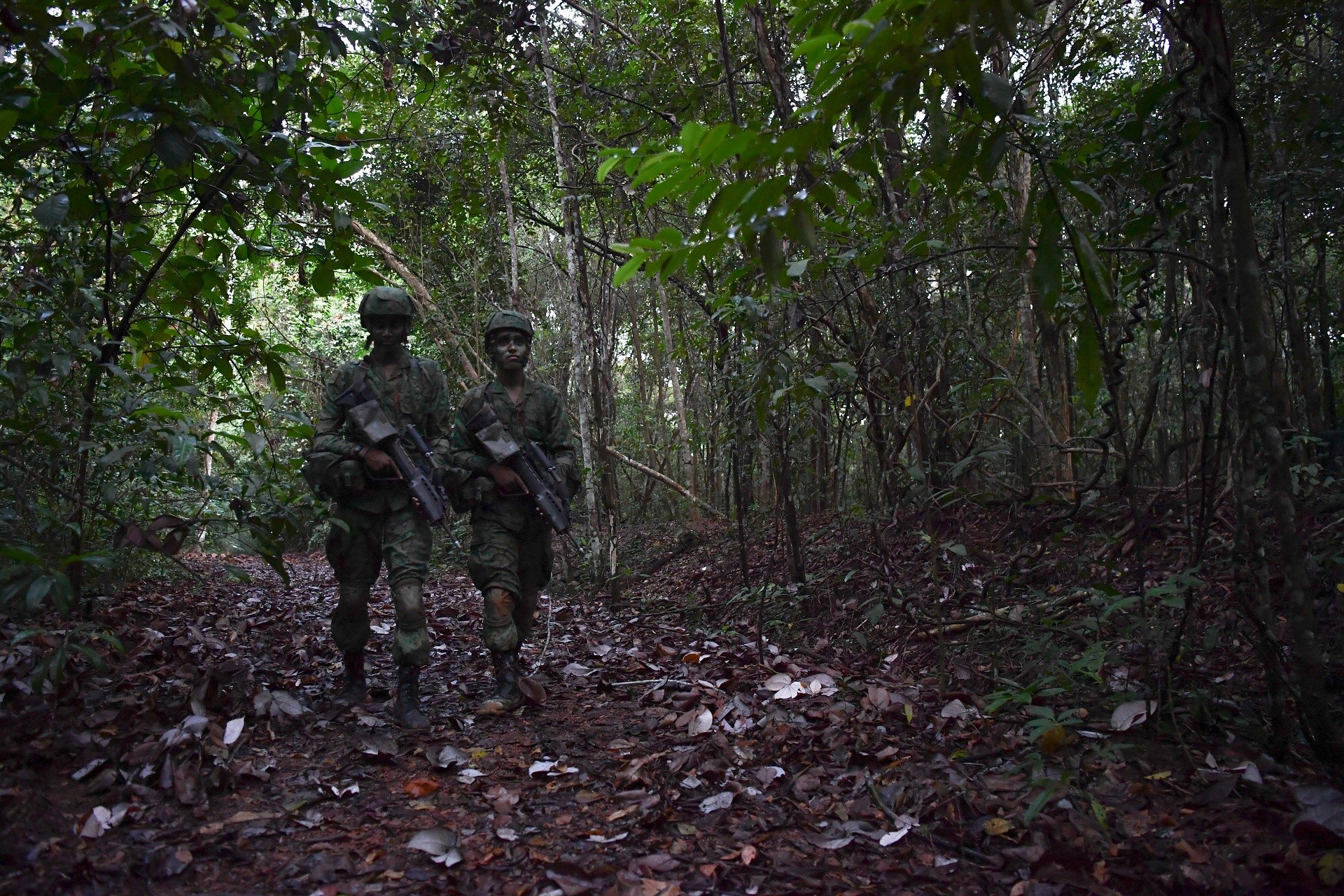
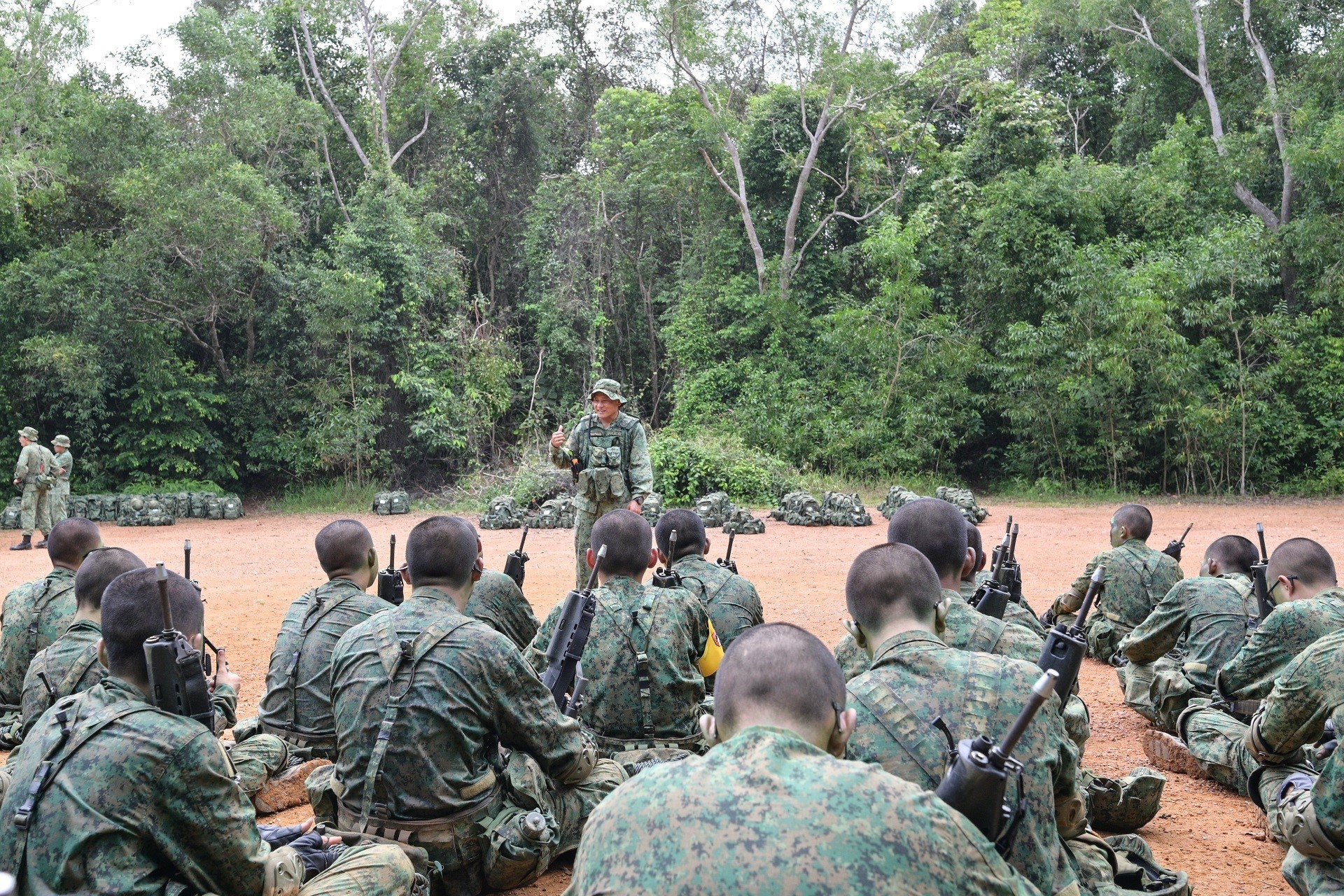
The field camp culminates in the Group Battle Course (GBC), where all the soldiering skills that the recruits have learnt are put to the test.
Ahead of the GBC, Company Officer Commanding Master Warrant Officer Wee Peng Choon (pictured above, centre, standing) visits the troops to offer words of encouragement and cheer them on.
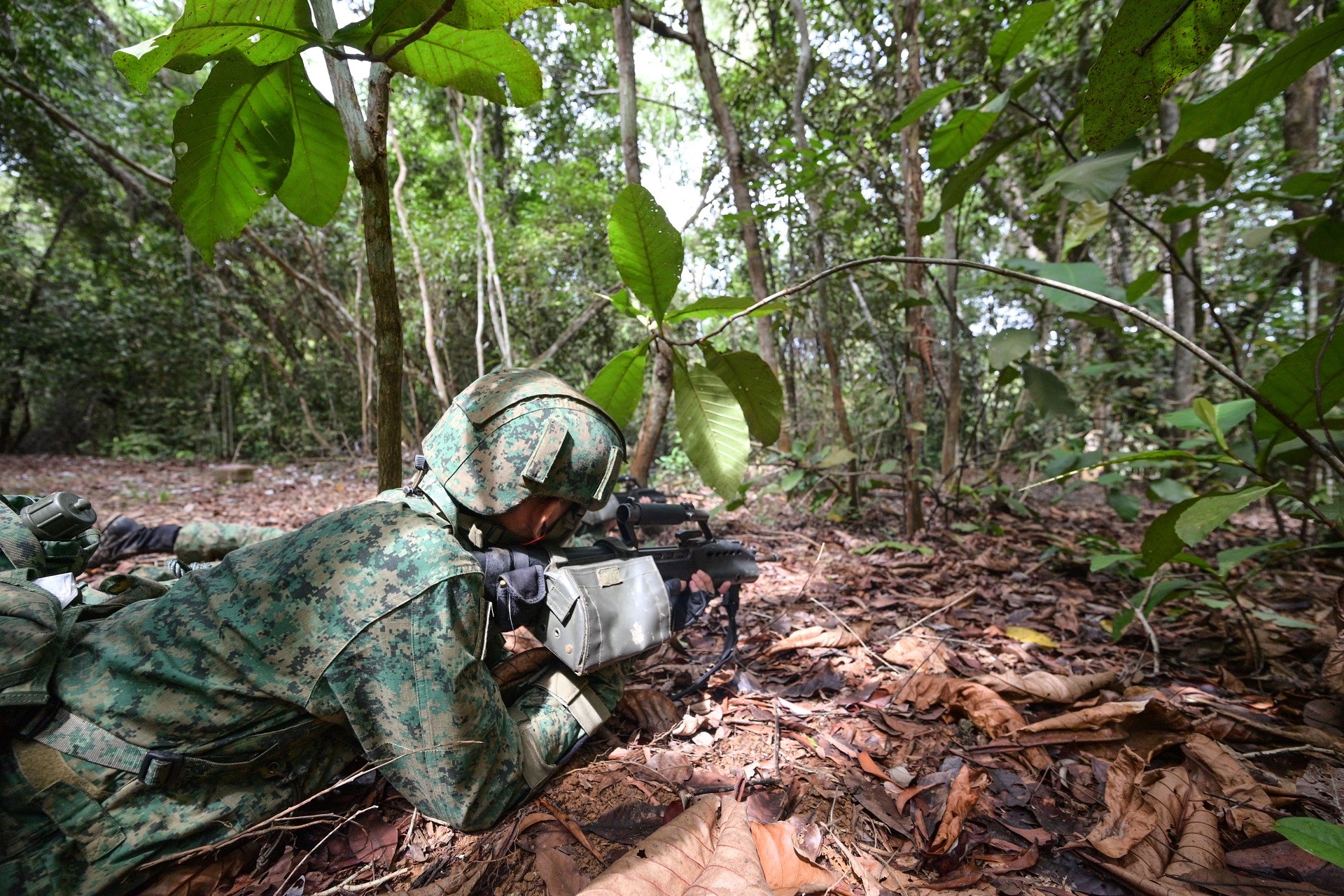
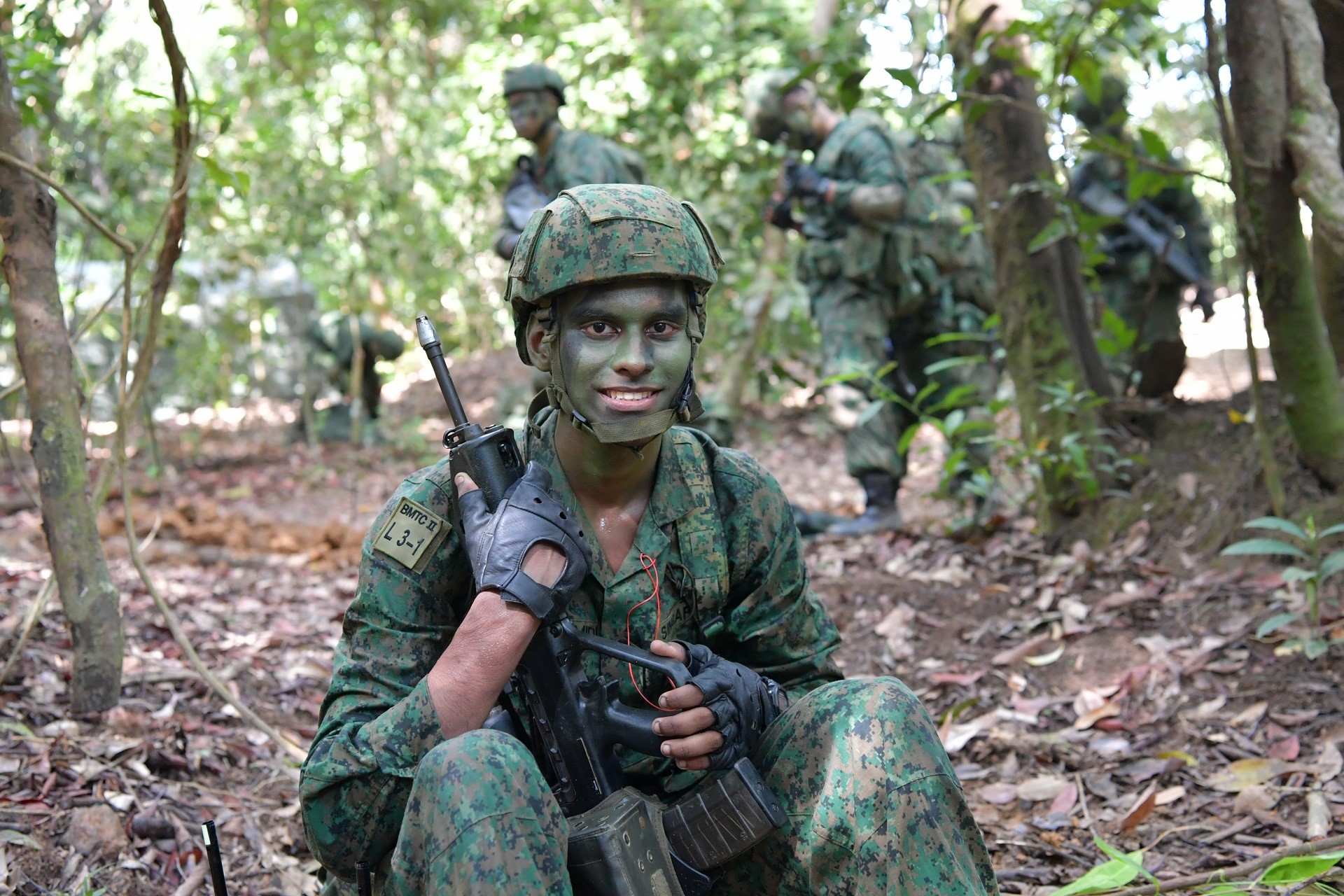
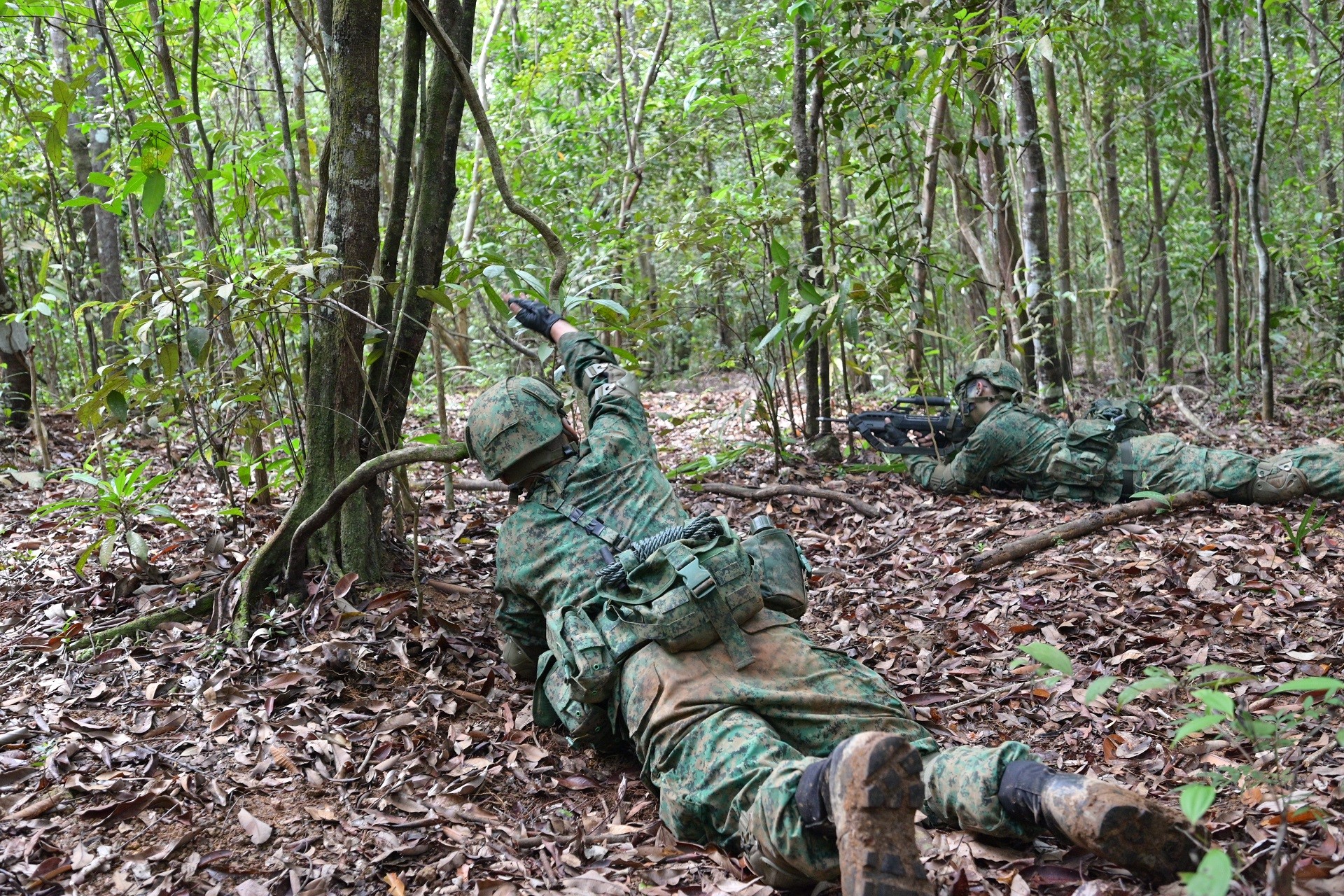
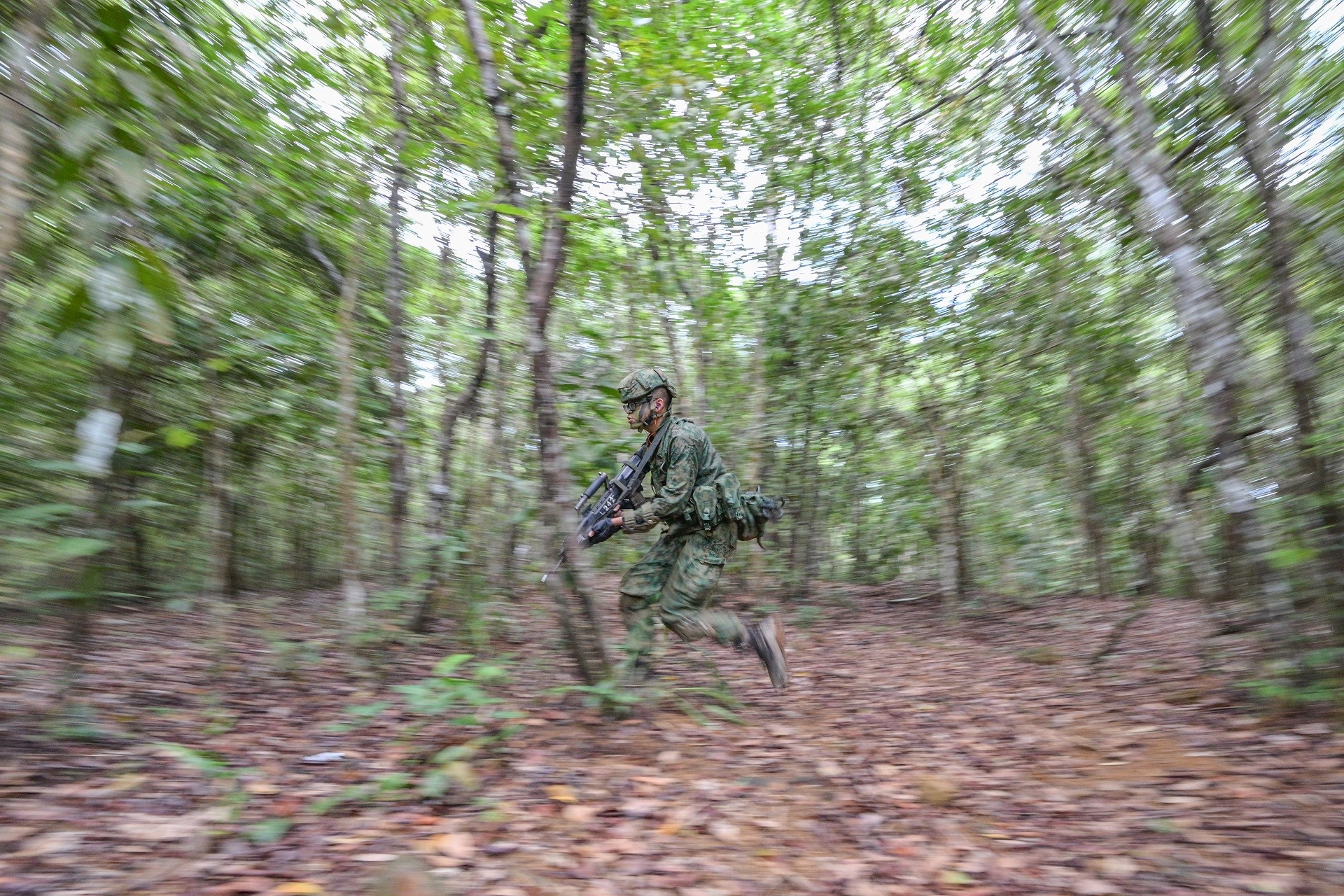
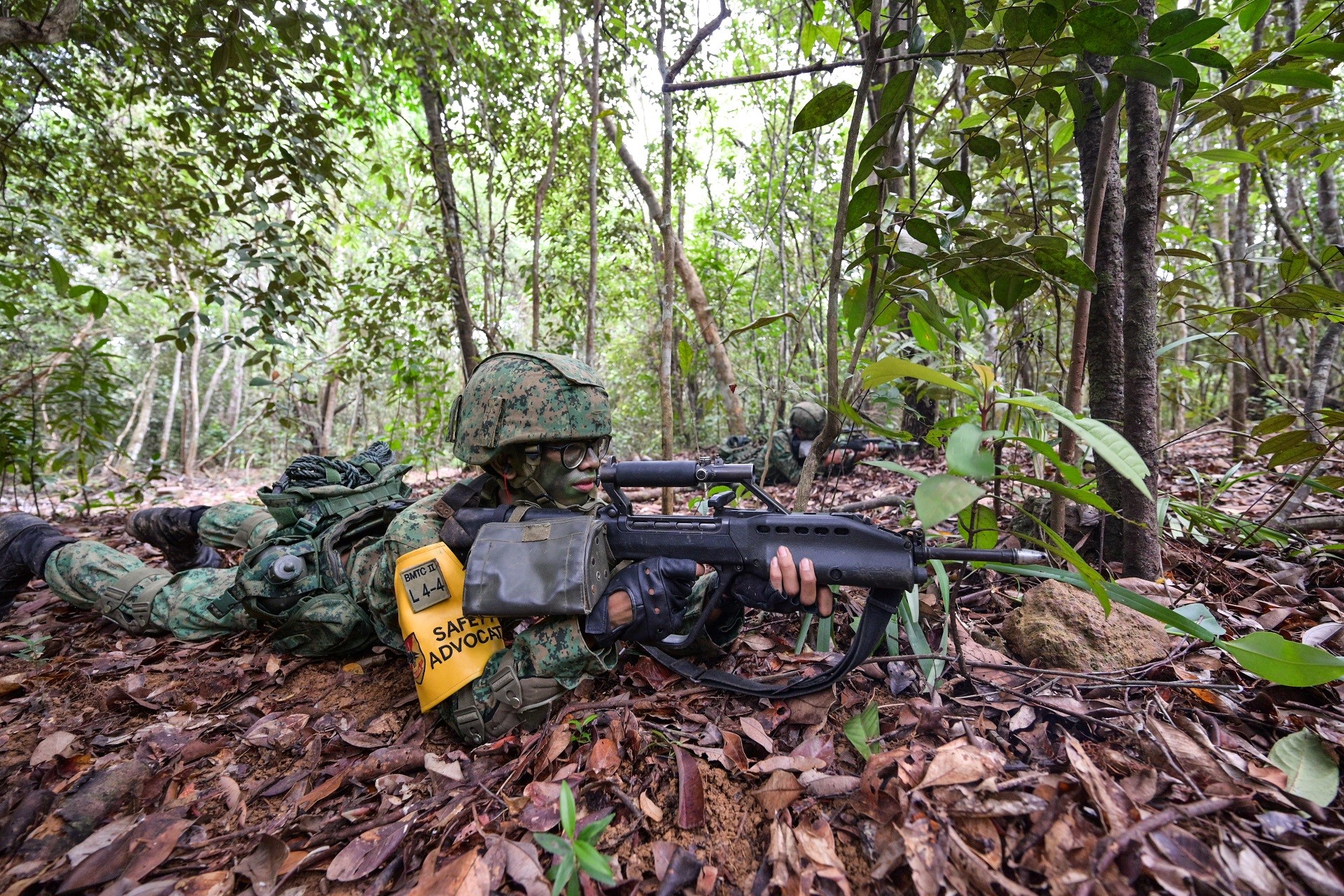
REC Hashri (pictured above), who was the platoon's Safety Advocate for the day, reflected on his GBC experience: "As Battle Group IC, you have a lot of responsibilities. You have to protect your teammates, and you need to know where the 'enemy' is. Whenever the enemy moves, you have to be aware and stay on top of it.
"But I enjoyed taking on the role of IC. I learnt more about myself, which is important because in the jungle you're sometimes on your own, and you need to know how to take care of yourself."
ALSO READ IN OPS & TRAINING
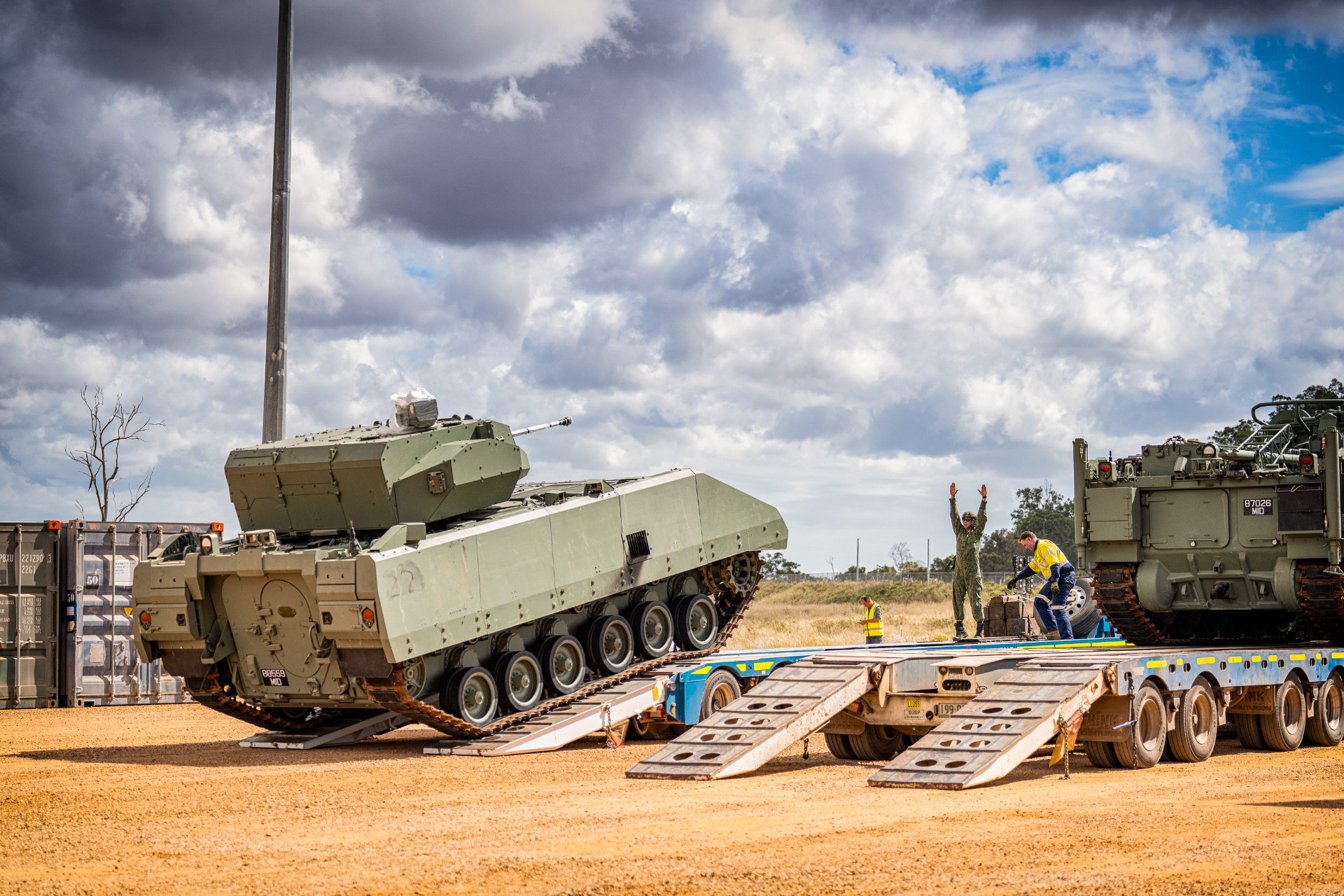
First in, last out at Ex Wallaby 2025
06 Nov 2025
Meet the teams who toil behind the scenes to enable the smooth conduct of the SAF’s biggest unilateral overseas exercise.
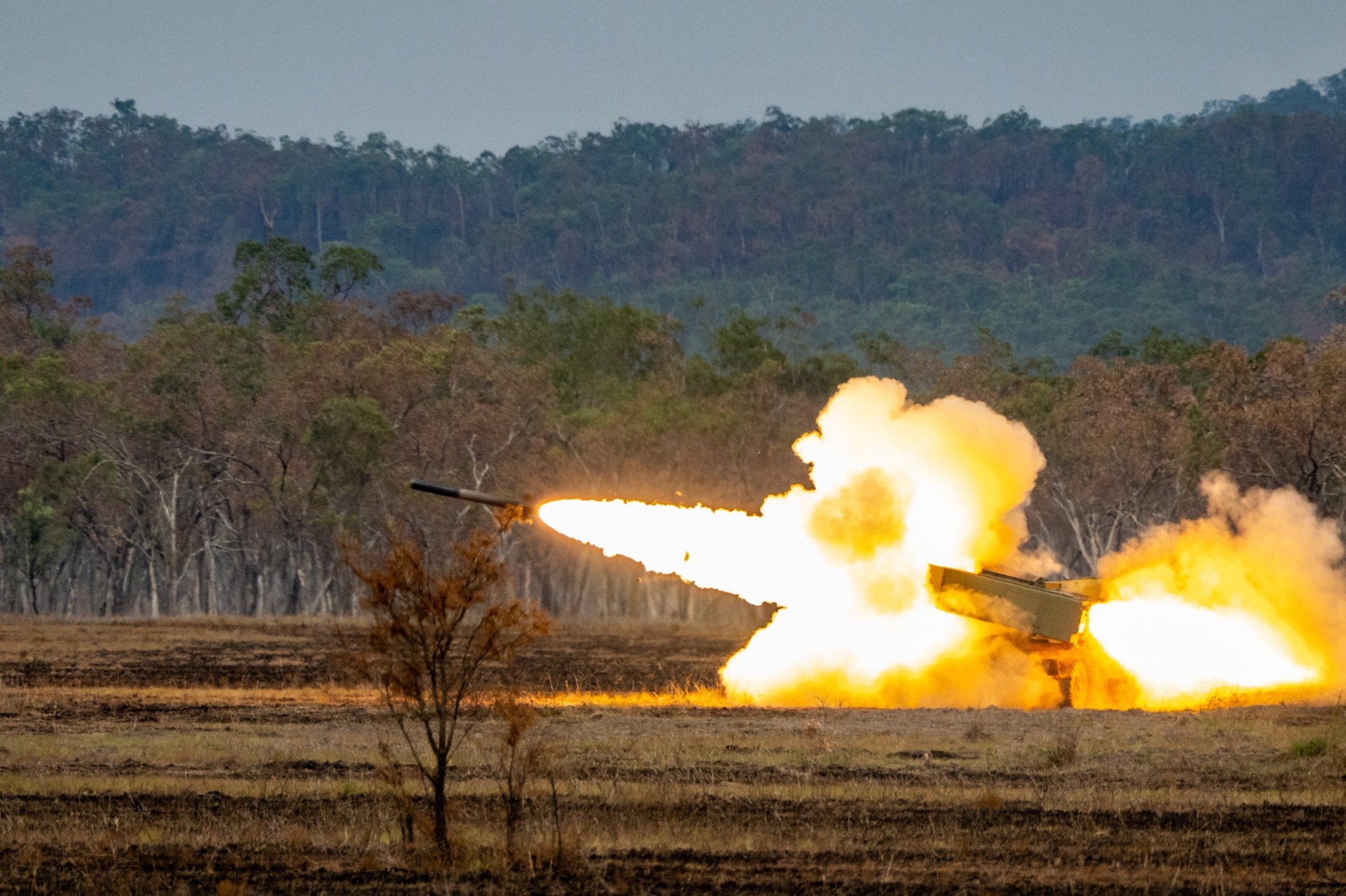
Exercise Wallaby 2025: To see better, shoot faster
31 Oct 2025
The SAF focuses on complex strike missions and multi-domain integration in Exercise Wallaby 2025, the 35th edition of its largest unilateral overseas exercise.
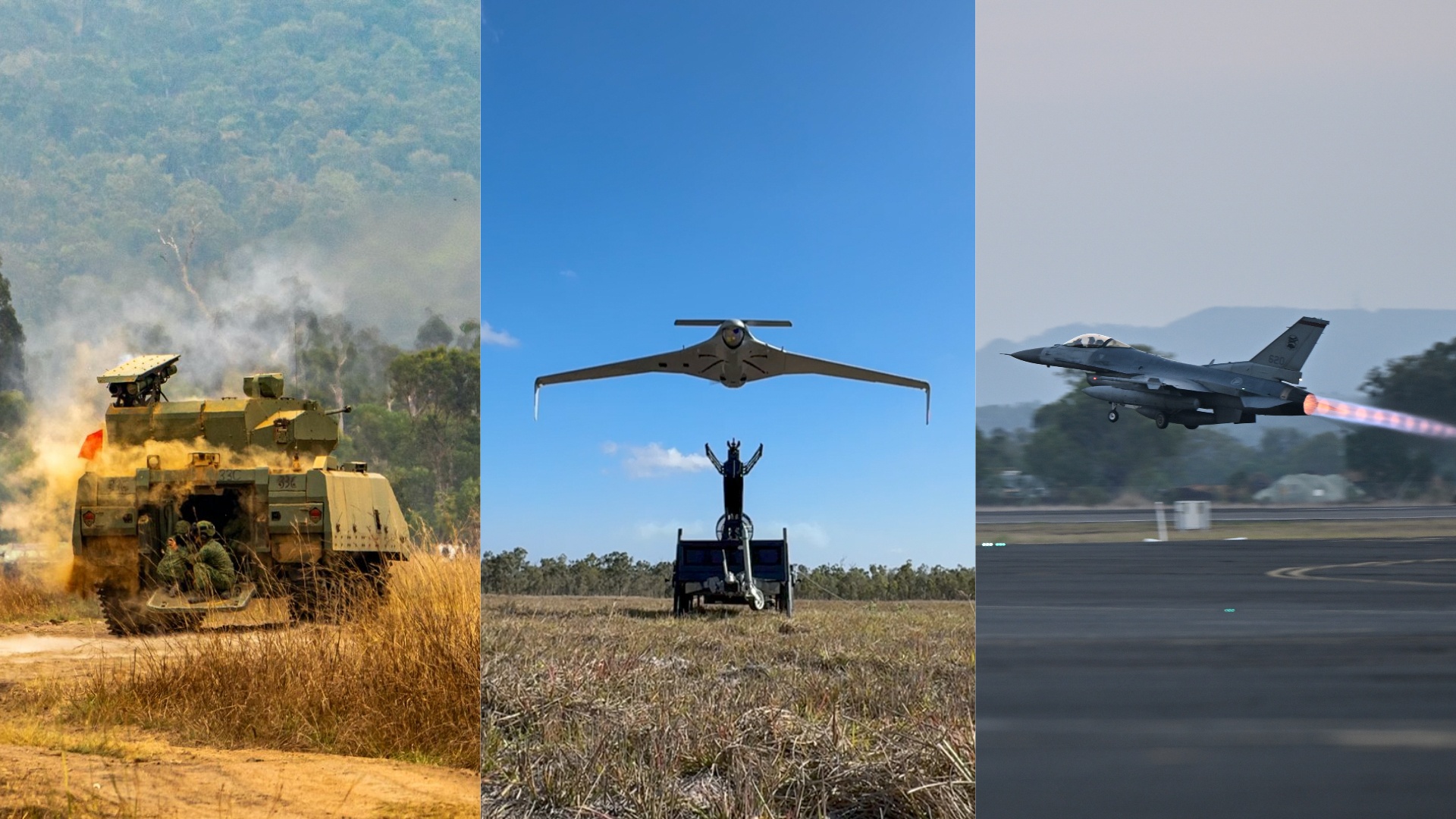
Ex Wallaby 25 – Greater Integration and Complexity
25 Oct 2025
The 35th edition of the SAF’s largest unilateral overseas exercise is an opportunity for expanded scale and deeper integration towards an effective, networked fighting force.


